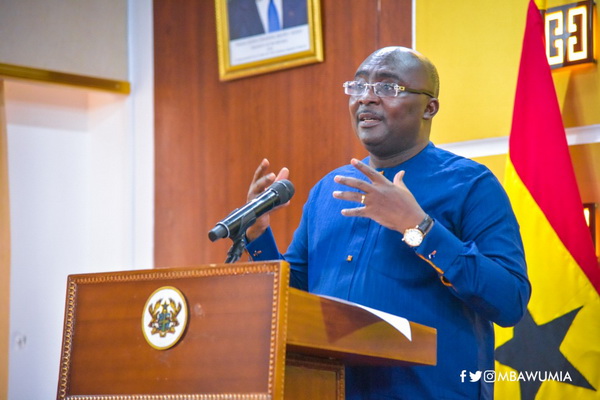Vice President of Ghana and Flagbearer for the New Patriotic Party (NPP), Dr. Mahamudu Bawumia has announced that government plans to recruit more personnel into the Ghana National Fire Service (GNFS) to meet the international standard.
He stated that it was unprecedented in the history of the GNFS for a government to recruit over 7,000 personnel, revealing that when the New Patriotic Party came into office in 2017, the total number of GNFS personnel was 8,000 but they were able to recruit 7,000 personnel, representing 88 percent increase within just seven years,
Dr. Bawumia indicated that such achievement is a demonstration of his dedication to improve the capabilities of the country’s firefighting force to provide world-class emergency and rescue services to Ghanaians. He made the announcement when he commissioned the first phase of the Fire Academy and Training School (FATS) at Duayaw Nkwanta in the Tano North Municipality of the Ahafo Region.
He stressed further that the commissioning of the first phase of the Duayaw Nkwanta FATS showcased government’s dedication to secure the well-being of all Ghanaians, stating that the school will serve as a representation of the government’s pledge in 2017 to expand the number of training schools for the GNFS.
Dr. Bawumia disclosed that when the NPP government took office in 2017, there was only one fire training school in Ghana, and it became obvious that the country urgently needed additional training facilities to enhance competence and support the expansion of GNFS services.
He emphasized government’s attempts to provide the GNFS with state-of-the-art equipment, which involves the provision of command vehicles, modern fire engines, drones, rapid intervention vehicles, buses, appropriate personal protective equipment, as well as rescue and fighting gear.
”The resources form part of a comprehensive strategy aimed at ensuring that firefighting personnel were well-equipped to respond effectively to emergencies”.
Dr. Bawumia also mentioned that the investment in modern equipment situate with government’s vision to empower the GNFS to fulfill its mandate of saving lives and protecting properties, stating that the resources were not only enhancing the capacity of the GNFS but also allows the handling of diverse and complex firefighting scenarios, thereby contributing to the overall safety and security of communities.









